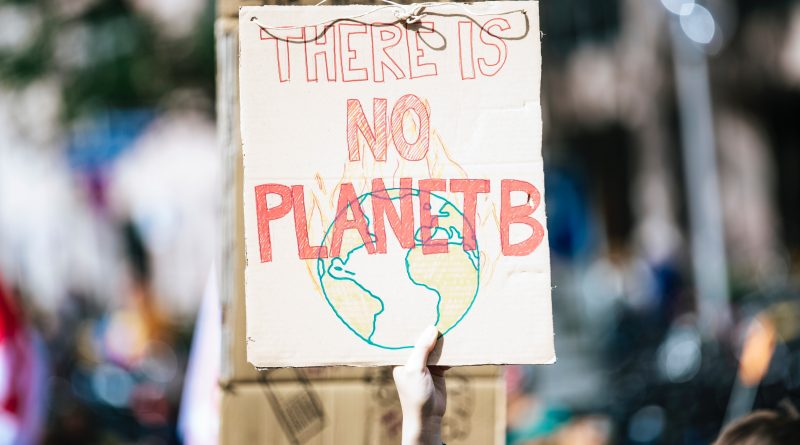The False Promises of Sustainable Policies: the Politicization of the Fight against Climate Change
Patrick Condon
Staff Writer
Sustainable environmental policies are nearly impossible to achieve at the current rate global governments are pursuing them. Numerous states profit from unsustainable practices of development, increasing the present divide between developed and developing countries. Old standards of development, and what it means to be sustainable, have systemically stunted progress toward sustainability. Effectively, the rate at which sustainable development has progressed is slower than the rate at which industrial development has continued. The general principles of sustainable policies must change, marking one of the main issues surrounding this year’s COP26..
There is an incredible tension surrounding this year’s UN Climate Change Conference, COP26, and its real ability to reverse governments’ sluggish approach toward sustainability. To many governments and companies present, the conference was an astounding success; 45 countries committed to more sustainable farming practices, 95 “high level” companies committed to halting unsustainable practices and reversing their impact on land, and 25 countries committed to phasing out coal power, according to COP26 statements.
However, the summit was engulfed by protests about the efficiency and ability of the conference to create real change to the rapidly increasing climate crisis. Notably, Greta Thunberg criticized the summits ‘successes,’ saying “we cannot solve a crisis with the same methods that got us into it in the first place,” according to NPR. Echoed by protests around the world, her pressure on leaders marks a shift in the accountability of non-compulsory commitments. Previous summits have made similar claims as was resolved this year, yet the danger of 2.7 degrees Fahrenheit increase in global temperatures remains closer than ever before.
The global approach towards sustainability is currently futile, as governments fail to roll out the necessary requirements to meet their goals and deter negative influences on said goals. The framework of sustainable policies currently focuses more on relief and adaptation than deterrence, which can be attributed to the international spotlight being commonly placed on politicians, who use this attention to highlight current and possible future funding. In essence, “there are more political rewards for devoting attention and resources to disaster relief, than disaster preparedness,” cites the Dhaka Tribune. Thus, funding towards disaster relief is seen as an overall success against climate change, in lieu of adopting necessary prevention measures .
The rhetoric about combating climate change often paints the world’s highest contributors to climate change as villains and the countries with the highest commitments to stopping climate change as heroes. This is not at all the case though. Under the current index of sustainable policies, the SDG Index, countries are ranked on a scale of sustainability by their efforts towards reaching the UN’s Sustainable Development Goals, defined by the Sustainable Development Report. This index is hampered by its blindness towards a country’s consumption.
Commonly, the countries with the highest commitments to stopping climate change, in terms of percentage spending of GDP, also have the highest impact on climate per capita. On this scale, most Scandinavian countries rank favorably on SDGs and developing industrial nations like China rank unfavorably. However, Sweden, for example, actually contributes more towards climate change due to its high per-capita consumption of natural resources, which the current system fails to include, as outlined in Foreign Policy. This false narrative of heroes and villains fundamentally undermines cooperative global efforts to combat climate change in every shape and form.
This process of sustainable development must be equal. Politicians have misconstrued this inclusion of equal development, and thus investment in sustainable technologies, to be conducted at the same rate between developed and developing countries. If developing countries were to meet the same rate of GDP spending as developed countries, the main agenda of many global leaders now, their long-run investment in sustainable practices would threaten their environmental security even further, reports Reuters. The politicization of commitments to fighting against climate change has split the world by level of development and capability to adapt to climate change. Adaptation to climate change and equal development must be a necessity to all governments, otherwise their philanthropic aid to disaster relief will be meaningless.
The world’s current progression towards sustainability is not efficient enough to create change needed to avoid the impending 2.7 degrees Fahrenheit increase in global temperatures. Policies must include compulsory benchmarks to ensure that sustainable policies are completely implemented. This lack of efficacy has undermined current projects towards real sustainability, and with a continuation of media focus on politicians’ individual efforts, the needs of developing countries will be drowned out. The focus of global discussions and summits must shift towards the people and countries most affected by the inevitable reality of climate change. There can be no real fight against climate change if there is no focus on the realities of the present.



